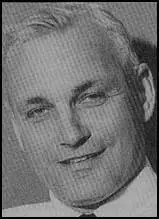Paul Sweezy

Paul Sweezy, the son of a vice president of the First National Bank of New York, was born on 10th April, 1910. He was educated at Philips Exeter Academy and Harvard University, where he edited the journal, Crimson. In 1932 he went to the London School of Economics where he came under the influence of Harold Laski.
Sweezy returned to the United States as a Marxist and began work on The Theory of Capitalist Development. This was eventually published in 1942. He became active in politics and in 1948 was a supporter of Henry Wallace and the Progressive Party.
In 1949 Sweezy and Leo Huberman established the radical journal, The Monthly Review. Contributors included Albert Einstein, W. E. B. DuBois, Jean-Paul Sartre, Fidel Castro, Che Guevara, Malcolm X, G. D. H. Cole, E. P. Thompson, and Ralph Milliband.
Sweezy was a victim of McCarthyism. In 1954 he received a jail sentence after refusing to hand over notes for a lecture he had given at the University of New Hampshire.
In 1960 Sweezy and Huberman travelled to Cuba where they studied Castro's reforms in education, nationalisation of industry and land reform. In a special issue of The Monthly Review (Cuba: Anatomy Of A Revolution) Sweeezy and Huberman argued that Cuba was undergoing a socialist revolution.
Sweezy was co-author with Paul Baran of Monopoly Capital (1965). In the 1970s Sweezy became increasingly concerned with environmental issues and the undeveloped world. In 1971 he wrote "the principal (capitalist) contradiction... is not within the developed part but between the developed and undeveloped parts".
Paul Sweezy died on 27th February, 2004.
